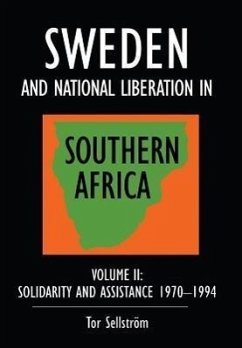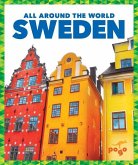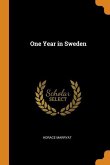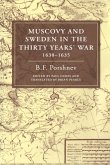This title is the second in a two volume study on Sweden and the struggle for national liberation in Southern Africa. Largely drawing from hitherto restricted sources at official and NGO archives, the study focuses on Sweden's relations with MPLA of Angola, FRELIMO of Mozabique, SWAPO of Namibia, ZANU and ZAPU of Zimbabwe and ANC of South Africa. The title discusses how the Swedish political, diplomatic and material support to these movements was expressed during the period from 1970 to 1994, i.e. until the first democratic elections in South Africa and the end of the region's thirty years' war for majority rule. The scope and orientation of the official humanitarian assistance to the very liberation movements that eventually assumed state power in their respective Southern African countries are documented and analysed. The title thus presents a unique and little known North-South relationship in the Cold War period.
Sweden's and the other Nordic countries' support for the national liberation process and struggle against apartheid was unique in the international context both in regard to the size of the financial support and the extensive popular involvement. This book attempts to document the involvement of Sweden in the Southern African struggles against colonialism, occupation and white minority rule. While Volume I set out to identify the actors and factors behind the involvement, the aim of the present volume is to illustrate the Swedish participation. The focus of this study is on official assistance to the national liberation movements but the important role played by the organized Swedish solidarity movement and other non-governmental organizations also forms part of the narration. The study also attempts to contribute to a broader understanding of the international aspects of the Thirty Years' War in the region, a significant chapter in the quest for national self-determination, democracy and human rights towards the end of the troubled 20th century. Primarily written for the general reader interested in relations between Sweden and the Southern African liberation movements, the presentation should also provide material and theoretical enquiries with regard to, for example, Swedish foreign policy in the cold war era; regional developments in a bipolar world; and the diplomatic initiatives, political alliances and material conditions of the different movements. This book is a part of the Nordic Africa Institute's Research Project National Liberation in Southern Africa. The Role of the Nordic Countries. The result of the project is a unique documentation, mainly drawing on hitherto restricted official primary sources. This book, together with the other studies published within the project, forms a valuable reference source for everyone interested in the 20th century history of Southern Africa in particular or North/South and international relations in general.
Hinweis: Dieser Artikel kann nur an eine deutsche Lieferadresse ausgeliefert werden.
Sweden's and the other Nordic countries' support for the national liberation process and struggle against apartheid was unique in the international context both in regard to the size of the financial support and the extensive popular involvement. This book attempts to document the involvement of Sweden in the Southern African struggles against colonialism, occupation and white minority rule. While Volume I set out to identify the actors and factors behind the involvement, the aim of the present volume is to illustrate the Swedish participation. The focus of this study is on official assistance to the national liberation movements but the important role played by the organized Swedish solidarity movement and other non-governmental organizations also forms part of the narration. The study also attempts to contribute to a broader understanding of the international aspects of the Thirty Years' War in the region, a significant chapter in the quest for national self-determination, democracy and human rights towards the end of the troubled 20th century. Primarily written for the general reader interested in relations between Sweden and the Southern African liberation movements, the presentation should also provide material and theoretical enquiries with regard to, for example, Swedish foreign policy in the cold war era; regional developments in a bipolar world; and the diplomatic initiatives, political alliances and material conditions of the different movements. This book is a part of the Nordic Africa Institute's Research Project National Liberation in Southern Africa. The Role of the Nordic Countries. The result of the project is a unique documentation, mainly drawing on hitherto restricted official primary sources. This book, together with the other studies published within the project, forms a valuable reference source for everyone interested in the 20th century history of Southern Africa in particular or North/South and international relations in general.
Hinweis: Dieser Artikel kann nur an eine deutsche Lieferadresse ausgeliefert werden.








